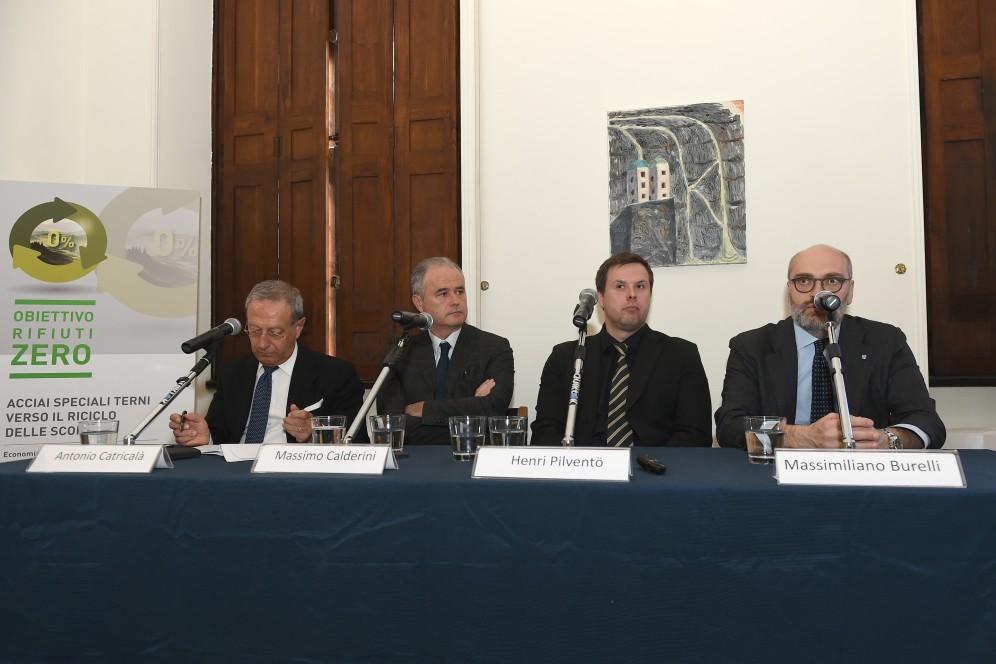Vision "Zero Waste" one step closer
The recycling and marketing of slag products from stainless steel production has now become somewhat easier. Acciai Speciali Terni has joined forces with the Finnish company Tapojärvi Oy to make this possible - the first project of its kind in Italy.
A new team is working on the further development of environmental standards in stainless steel production: Acciai Speciali Terni (AST) and Tapojärvi Oy. Together they have found a solution to recycle the slag from the production of industrially sustainable stainless steel into materials that can be recycled and marketed.
After processing, the slag has similar properties to gravel and sand. With the CE marking, it can be used as an alternative to natural materials for the construction of road foundations or for the production of concrete or asphalt.
Investing in the future of the environment
The partnership between AST and Tapojärvi, officially launched in August 2018, is a long-term commitment: the contract provides for two years for the construction of the slag processing plant and ten years for the joint operation, with the additional option of another ten-year cooperation. AST is investing a total of between €57 million and €65 million in the sustainability project.
The investments are worthwhile – the planned changes to the project will have several positive effects on the environment:
- All activities related to slag and metal recovery will take place in halls with appropriate air handling and treatment systems to significantly reduce diffuse emissions.
- The logistics of the slag management process is being redesigned. This also leads to a reduction in diffuse emissions.
- By optimizing the slag management cycle, more compact materials are created with less dust and lye emissions.
In addition, the project has a positive effect on nature: The natural alternatives to slag such as gravel and sand are often produced in quarries, which can have serious consequences for the environment.
The heart of the cooperation is the processing plant, which processes the slag into usable aggregates. Steel is considered to be one of the most frequently recycled materials - thanks to the long-term preservation of its specific properties (resistance, toughness, ductility and corrosion resistance of stainless steels) it achieves very high recycling rates.
The recovery of the residues resulting from the iron and steel process - the slag - is an important step towards the complete implementation of a closed-loop economy. This is precisely the aim of the AST-Tapojärvi cooperation.
Still a few obstacles to overcome
Alternative materials of natural origin such as gravel or sand represent the biggest competition because they are particularly inexpensive. Further obstacles to the successful marketing of recycled materials may lie in unclear rules and technical or regulatory conditions.
In Italy, for example, it is particularly difficult to assign the status of the "by-product" to a residue from an industrial process. For this reason, even if the slag is destined for recycling, it must be sold as "waste" when it comes to authorising the product.
Clearer rules will pave the way for the recycling of aggregates and improve opportunities to reduce the withdrawal of new material from quarries and the impact on the landscape.
An exciting new way
For AST, the path to becoming a competence center for the management of steel mill slag for stainless steel has begun. If the concept of a closed cycle economy meets the desire for sustainable growth, the use of AST in waste management is of particular importance: a large steel location takes a big step towards the ambitious goal of "Zero Waste".
